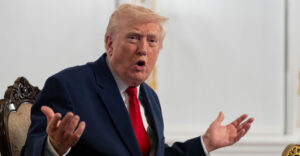Bitcoin is an intangible asset, meaning it doesn’t have a physical form, but like any currency, it has two sides. One is the “party” atmosphere that followed Donald Trump’s election, sending the price soaring to the historic high of $89,000, fueled by expectations of a more crypto-friendly policy from the US. The other side is the strict framework for monitoring, controlling, and taxing (to combat money laundering and tax evasion) that the EU has set, and which Greece is set to adopt by the end of the year.
“Buy whatever you can.” This phrase from Bernstein analysts, urging clients to invest “as quickly as possible” in Bitcoin, reflects the euphoria currently sweeping the cryptocurrency space. The leading cryptocurrency hit a record high, with a 19% jump from November 6 to yesterday, climbing from $82,000 to $89,000. As a result, analysts who previously predicted that Bitcoin would reach $100,000 by January 2025 and those from Bernstein who see it hitting $200,000 by the end of next year, no longer seem overly optimistic.
While the “party” in cryptocurrency prices continues, in Greece, the Ministry of Finance is preparing what crypto holders fear most: the framework for registering, controlling, and taxing cryptocurrencies and other digital assets, hastily setting up a committee. This committee, which is being formed for the second time (after it was dissolved in early August by the Ministry of Finance before it could prepare its report), will be tasked with defining the tax framework for cryptocurrencies and determining how investments in them will be monitored, as part of the EU’s stringent strategy to fight money laundering and tax evasion.
Taxation Framework in Greece
Thus, while Bitcoin is officially recognized in Greece, it loses a key advantage it had previously: full anonymity in transactions, which made it attractive for money laundering from criminal activities. This taxation framework, which is a double-edged sword for cryptocurrencies internationally, recognizes them as assets but also brings them under “surveillance” by central banks, contradicting the original purpose of cryptocurrencies, which was independence from the central banking system.
Greece is racing to meet the December 30, 2024 deadline for EU member states to incorporate the EU and OECD framework (MiCA Regulation for Crypto-Assets Markets) into national law, which sets rules for market participants and protects consumers.
Therefore, Greece is expected to join, in early 2025, the 59 countries in the OECD’s Crypto-Asset Reporting Framework (CARF), which expands the Automatic Exchange of Information for tax purposes (currently applied to bank deposits) to include encrypted assets.
“Cryptocurrencies are a new reality, we cannot deal with them through denial. However, there is not enough control at the national and international levels,” said the Minister of National Economy and Finance, Kostis Hatzidakis, recently, announcing the development of “an effective and fair institutional framework for cryptocurrency taxation, alongside the integration of international legislation to protect consumers.”
Indeed, Greece’s national plan for cryptocurrencies includes imposing a capital gains tax on profits from cryptocurrencies. This will make cryptos no longer “invisible” to the tax authorities (their returns will be taxed, and Bitcoin holders will be able to justify profits from them and the acquisition of assets). The committee that will shape the proposed framework for taxing and controlling cryptocurrencies will meet at least once a month. The chair of the committee will be Maria Psylla, General Secretary of Tax Policy at the Ministry of Finance, with other members including Theoni Alampasi (General Secretary of the Financial Sector), Vasiliki Lazarakou (President of the Hellenic Capital Markets Commission), and others.
Why Crypto Holders Are Laughing
This euphoria, which has driven the historic rally in the cryptocurrency ecosystem, is based on the expectation that newly-elected US president Donald Trump will adopt a more positive stance toward cryptocurrencies and give them a more institutional role. Trump has indeed promised this during his campaign, but what fuels even greater optimism among crypto enthusiasts is the anticipation of major changes at the Federal Reserve Bank, the US central bank, by appointing a leader with a more crypto-friendly agenda to this stronghold of traditional banking, where the most vocal critics of cryptocurrencies reside.
“Bitcoin speculators are betting on a clearer regulatory environment and have expectations that authorities could create a cryptocurrency reserve fund, contributing to the continued rise in demand,” explains Susannah Streeter, Head of Money and Markets at Hargreaves Lansdown. Although experts advise “caution” when it comes to investing—especially from so-called “small fish,” retail investors—in cryptocurrencies, this celebratory atmosphere is driving the rally at a frenzied pace, leading to reasonably grounded expectations that, in the traditional Santa Rally (the mini rally of markets and cryptocurrencies during the final days of the year, which generally follows the market trend), Bitcoin could reach and possibly surpass $100,000, its highest point in history.
However, this will not be the first time such an atmosphere has existed. Bitcoin and other cryptocurrencies have experienced similar “price explosions” in the past, justifying the reputation they have for high volatility. But when the “waters recede,” and prices undergo correction, it is the less powerful investors who “pay the price.” Those who are “underwater” hold an intangible asset that is now worth less than what they paid for it.
After all, Bitcoin has had such rallies before, for various reasons, mainly due to large companies accepting it as payment, such as PayPal in 2020, reasons that no longer exist today. “Bitcoin is completely unsuitable for payments and is also unreliable as a stable investment. The only real reason to buy Bitcoin is for speculation,” says Jonas Groß, president of the Digital Euro Association (an organization that promotes electronic payment systems). Groß is less cautious, seeing some fundamental market factors that currently favor the asset. “Bitcoin has established itself as a new asset class. The first pension funds are already investing, and in my opinion, it is only a matter of time before the first government investment funds enter the space. And then we’re talking about a completely different scale,” he stated.
Ask me anything
Explore related questions





